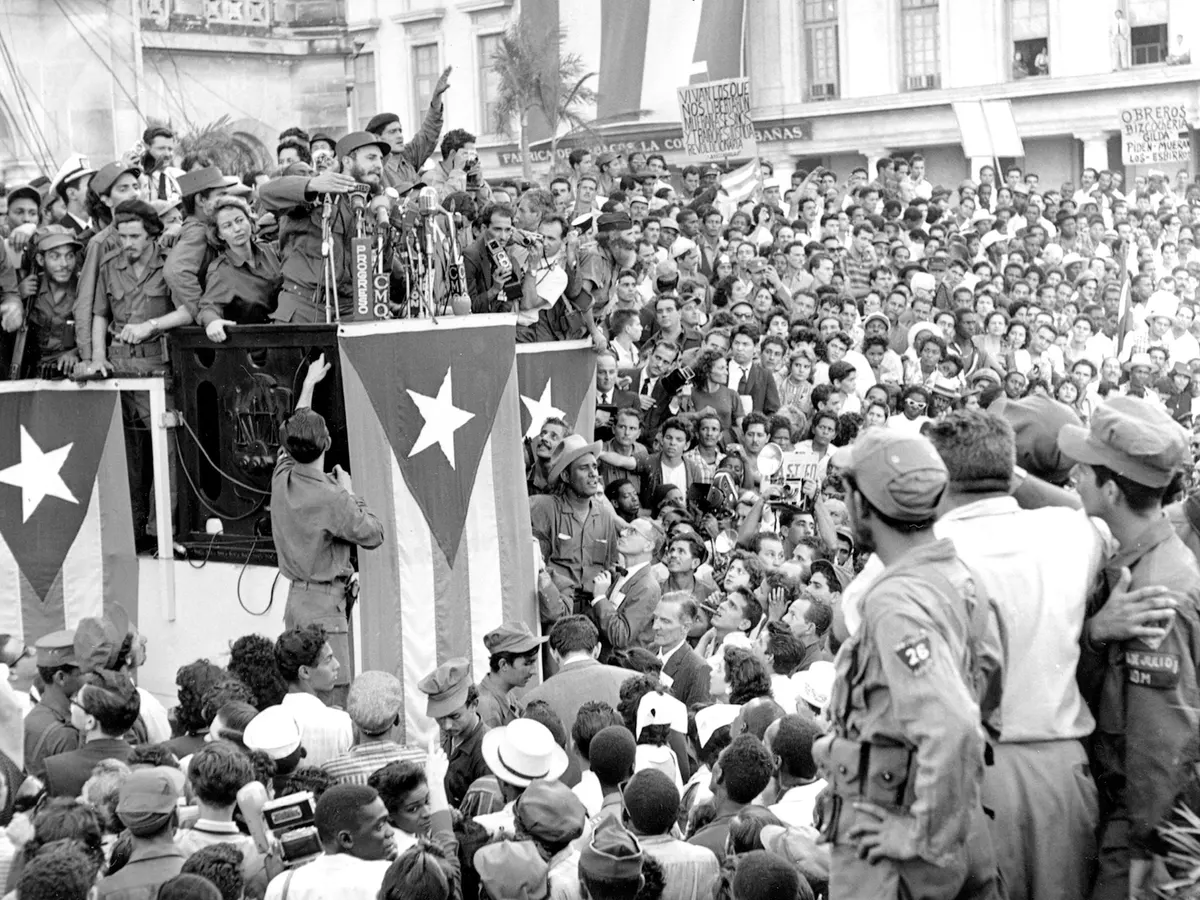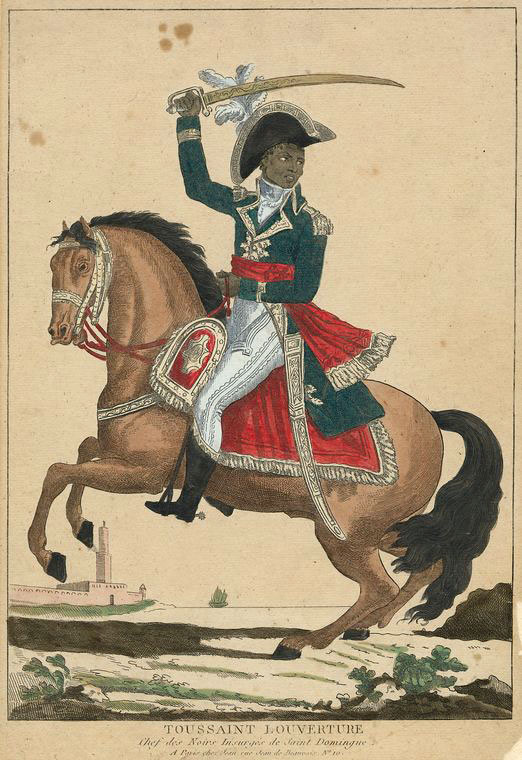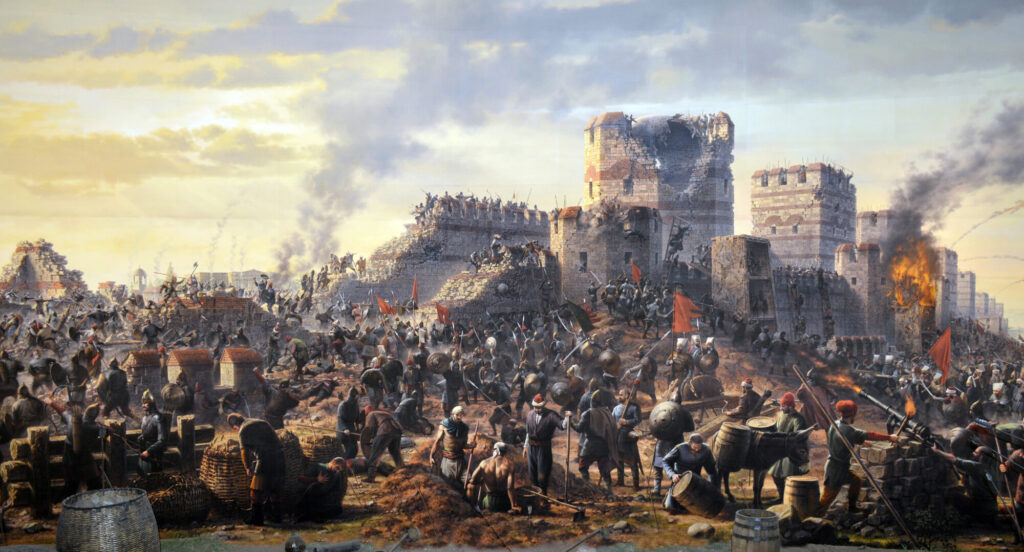A History of the World Part II (1500-Present): Becoming Modern
3 Lecture Hours/week
3 credits
Zero-Textbook Cost
Instructor Name: Samuel Finesurrey
E-mail: [email protected]



Course Description
A History of the World Part II – 1500 to Present
This course will introduce students to the intellectual, religious, political, and cultural forces that transformed Africa, Asia, the Middle East, the Americas, and Europe. We will examine social, cultural, political, and economic changes, events, and concepts that defined and shaped modern societies. The course focuses on breaking traditional historical narratives that trace U.S. and European elites throughout the last 600 years of world history by uplifting the voices of marginalized groups, non-western and non-elites whose struggles, movements and revolutions shaped the modern globe. Every week we will hear from everyday people from around the globe who will share their experiences with us at a particular time and place. Students will develop the ability to critically read and understand primary sources, and to place them within the necessary historical context. By the end of the semester, undergraduates will be able to write organized and well-written essays that make an evidence-based argument concerning historical events, ideas, traditions, people, and processes. Finally, they should be able to articulate the motivations of various actors in major events studied in the course and complicate the dominant narrative.
Prerequisites/corequisites:
N/A
|
Course Learning Outcomes |
|
Appraise major historical events and trace connections between watershed moments overtime and across the globe that shaped the present. |
|
Evaluate varied historical perspectives significant moments. They will be able to analyzewhy different peoples think, govern themselves, fight and interact with each other the ways they do. |
|
Explain why different people think, govern themselves, fight and interact with each otherthe ways they do. |
|
Analyze and critique different types of historical sources including written texts, art,artifacts, architecture, photos, recordings and video. |
|
Utilize their critical thinking, writing, and rhetorical skills and to construct evidence-basedarguments about history. |
|
Identify patterns and divergences between varied societies and the movements,advancements, conflicts, and struggles that shaped historical and modern experiences. |
Suggested Course Textbooks:
Kordas, A., Lynch, R. J., Nelson, B., & Tatlock, J. (2023). World History Volume 2, from 1400. OpenStax. https://openstax.org/books/world-history-volume-2/pages/1-introduction
Grading:
Course Assignments and Grading
| A+ | 4.0 | 97-100% |
| A | 4.0 | 93-96.9% |
| A- | 3.7 | 90-92.9% |
| B+ | 3.3 | 87-89.9% |
| B | 3.0 | 83-86.9% |
| B- | 2.7 | 80-82.9% |
| C+ | 2.3 | 77-79.9% |
| C | 2.0 | 73-76.9% |
| C- | 1.7 | 70-72.9% |
| D+ | 1.3 | 67-69.9% |
| D (passing) | 1.0 | 60-66.9% |
| F | 0 | 0-59.9% |
| NC* | Not calculated | 0-59.9% |
Key Assignments
- Participation, Attendance & Punctuality 15%
- Weekly Assignments 25%
- Debate Assignment 10%
- Final Paper/Presentation 30%
- Final Exam 20%
Oral History Project (30%):
Oral History (10%): You will interview a peer or elder about how they learned about a series of historic events discussed in the class.
Transcript (5%): You must edit your oral history transcript to prepare it for consumption by your classmates.
Final Project (15%): Final Paper/Presentation You will have access to each other’s’ testimonies to write about how a historic event is taught and make an argument about what that says about who we celebrate in history and why. You will present your findings to the class in a five minute presentation.
Your final paper/presentation must have…
- A research question you are answering. Make sure it’s a question the interviewees can answer.
- A clear thesis that answers the research question you are posing. The thesis should identify a pattern in the experiences documented through this oral history project.
- At least three body paragraphs with each having a clear topic sentence followed by at least three quotes from the oral histories collected by you and your peers that will be used as evidence.
Rubric for Signiture Assignment
Oral History (100 Points)
|
Criteria |
Exemplary (90-100 pts) |
Proficient (75-89 pts) |
Developing (60-74 pts) |
Needs Improvement (0-59 pts) |
|
Preparation |
Thoughtful, relevant questions prepared. |
Relevant questions with minor gaps. |
Basic or incomplete questions. |
No preparation or off-topic questions. |
|
Interview Execution |
Showed active listening and asked important and timely follow-up questions |
Showed some active listening and at times asked timely follow-up questions |
Limited or shallow listening displayed. |
Poorly conducted or incomplete interview. |
|
Ethics |
Clear consent obtained, respectful process. |
Minor lapses in ethical considerations. |
Inconsistent attention to ethics. |
No consent or unethical process. |
Transcript (50 Points)
|
Criteria |
Exemplary (45-50 pts) |
Proficient (35-44 pts) |
Developing (25-34 pts) |
Needs Improvement (0-24 pts) |
|
Accuracy |
Complete and highly accurate perfectly following the instructions laid out in the assignment. |
Mostly accurate with minor errors or a failure to fully follow the instructions laid out in the assignment. |
Noticeable errors or omissions. |
Inaccurate or incomplete. |
|
Clarity |
Well-organized, easy to read. |
Clear but with minor formatting issues. |
Lacks clarity or formatting. |
Disorganized and unclear. |
|
Relevance |
Focused on key historical details. |
Some irrelevant details included. |
Key points missing or unclear. |
Off-topic or irrelevant. |
Final Project (150 Points)
|
Criteria |
Exemplary (135-150 pts) |
Proficient (110-134 pts) |
Developing (90-109 pts) |
Needs Improvement (0-89 pts) |
|
Research Question |
Clear, insightful, and answerable. |
Clear but lacks depth or focus. |
Vague or overly broad. |
Missing or irrelevant. |
|
Thesis Statement |
Strong, clear, that lays out the big points of the essay and identifies a pattern that connects the points. |
Laid out some of the key points and etched a somewhat clear conception of a pattern. |
Vague or loosely connected to research. |
Missing or unrelated. |
|
Evidence & Analysis |
Three body paragraphs/key points with strong topic sentences/statements, integrated quotes, and thoughtful analysis. |
Some gaps in quotes or analysis but mostly effective. |
Missing quotes or weak analysis. |
Lacks structure, quotes, or analysis. |
|
Organization & Clarity |
Well-organized with logical flow and clear language. |
Minor lapses in organization or clarity. |
Disorganized or unclear in places. |
Poorly organized or difficult to follow. |
|
Presentation |
Engaging, clear, and concise. |
Clear but less engaging or overlong. |
Lacks clarity or focus. |
Incomplete or unclear. |
Weekly Assignments (25%):
Nearly every week there will be a set of graded assignments due on Sunday nights. You will submit your notes and answer a set of questions based on the assigned materials.
Participation, Attendance & Punctuality (15%):
You are expected to participate in in-class assignments working with primary sources and class discussions showing active listening and critical thinking.
Debate Assignment (10%):
Students will read arguments made by historians and contemporary actors about various topics over the course of the semester including what defines a “civilization”, the nature of empire and positions on various historical conflicts and movements. This assignment will culminate in every student participating in 1 of 4 debates.
Final Exam (20%):
You will have an open note final exam covering material from the entire course.
Weekly Schedule
|
Week |
Topic |
What’s Due |
Readings |
|
Week #1 |
Class 1: Intro to A History of the World Part II and Oral History Project
Class 2: On the Verge of a Global World |
Notes and short quiz on readings/video.
In-class assignment working with primary sources |
|
|
Week #2 |
Class 3: Contact and Genocide in the Americas
Class 4: Networks of Empire in East Asia |
Notes and short quiz on readings/video.
In-class assignment working with primary sources |
Chapter 2: Exchange in East Asia and the Indian Ocean
Chapter 5.2 Crossing the Atlantic
Crash Course: Indian Ocean Trade,Colonizing America& The Columbian Exchange |
|
Week #3 |
Class 5: The Modernizing Islamic World
Class 6: Introduction to Debate Project |
Notes and short quiz on readings/video.
In-class assignment working with primary sources |
|
|
Week #4 |
Class 7: West Africa Before the Transatlantic Slave Trade
Class 8: East Africa and the Indian Ocean Exchange |
Notes and short quiz on readings/video.
In-class assignment working with primary sources |
|
|
Week #5 |
Class 9: The Slave Trades
Class 10: Debate One – How does slavery happen? |
Notes and short quiz on readings/video.
Debaters for debate one must be prepared with key points and arguments. |
Chapter 3.1: The Roots of African Trade
Chapter 3.4: The Trans- Saharan Slave Trade
|
|
Week #6 |
Class 11: European Colonization of Asia
Class 12: Creating an Oral History Project |
Notes and short quiz on readings/video.
In-class assignment working with primary sources |
Crash Course: Asian Responses to Imperialism |
|
Week #7 |
Class 13: The Age of Revolution Part I
Class 14: The Age of Revolution Part II |
Notes and short quiz on readings/video.
In-class assignment working with primary sources |
Chapter 7.3 Revolutions: America, France, and Haiti
Chapter 8.2: Spanish North America
Chapter 8.3: Spanish South America
|
|
Week #8 |
Class 15: Debate Two – How were revolutions in France, the U.S, Spanish America, and Haiti like one another, and how were they distinct?
Class 16: Contesting 19th Century Colonization in Africa |
Notes and short quiz on readings/video.
Debaters for debate two must be prepared with key points and arguments. |
|
|
Week #9 |
Class 17: Industrial Revolution & Labor in the Industrial World
Class 18: Editing a Transcript |
Notes and short quiz on readings/video.
Oral History Due
In-class assignment working with primary sources |
Chapter 6.2: The Rise of a Global Economy
Chapter 6.3: Capitalism and the First Industrial Revolution
Chapter 9.1: The Second Industrial Revolution Crash Course: Coal, Steam and the Industrial Revolution & The Industrial Revolution |
|
Week #10 |
Class 19: Debate Three – Is Industrialization a Good Thing? & Introduction to Final Project
Class 20: The World Wars Spark Revolutions in Russia and China and the Birth of a Cold War Order |
Notes and short quiz on readings/video.
Debaters for debate three must be prepared with key points and arguments.
In-class assignment working with primary sources |
· Chapter 13.1: An Unstable Peace · · Chapter 13.2: Theaters of War · |
|
Week #11 |
Class 21: Introduction to Final Project
Class 22: 20th Century Revolutions |
Notes and short quiz on readings/video.
Oral History Transcript Due
In-class assignment working with primary sources |
Crash Course: Russian Revolution and Civil War, Decolonization
|
|
Week #12 |
Class 23: The American Empire and the War on “Terror”
Class 24: Debate Four –Has the rise of the United States as the sole super-power been a net-benefit for the globe? |
Oral History Final Project is Due
Debaters for debate four must be prepared with key points and arguments.
In-class assignment working with primary sources |
Finesurrey and Greaves, “Mapping the Historical Patterns of U.S. Foreign Policy” |
|
|
Last day of Class |
||
|
|
Final Exams |
||

